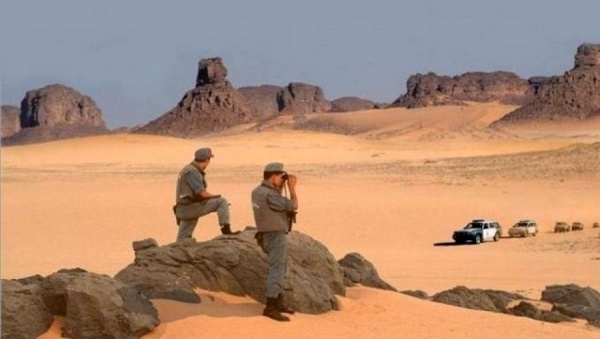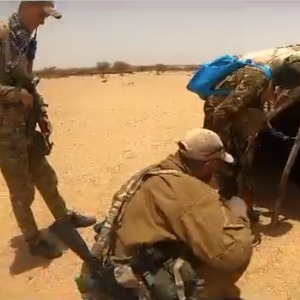Fresh troop movements and unusual activity along the Algeria-Libya borders are clear indications of the potential for an imminent Western offensive in Libya, according to MEA Risk security trackers. The Algerian authorities, fearful for the consequences of a generalized foreign military intervention in Libya, are setting up refugee camps in order to satisfy the humanitarian needs of the Libyan population in the region of Illizi, despite the economic hardships Algeria is going through.
Although authorities in Algeria are careful not to dramatize the situation, by insisting that these measures are only preparations in case of a worsening security situation, previous events of similar nature followed with actual attacks, as was the case with the Sabratha bombing. Therefore MEA Risk analysts predict a very strong likelihood of a large scale military operation in the coming days.
Specifically, MEA Risk predicts a new wave of bombings, to be led by the US Air Force and aided by air forces of France, Italy and the United Kingdom.
In the region, specifically Algeria and Tunisia, there has been heightened concern over the consequences such attacks would have on regional stability. They would essentially expand and export the Libyan conflict beyond its western borders. An exception is Egypt, on the eastern side of Libya, which has long been lobbying for a foreign intervention.
The biggest potential trouble spot is the Tunisian-Libyan border. Despite the heavy presence of security forces along the border, Libya’s proximity to Tunisian urban and populated centers is a major concern. Further south, Algeria and Libya share a 900 kilometer border, which despite an ongoing beefing up of Algeria troops, not the entire border can be fully secured.
In Algeria, the military and civilian authorities are spending millions of dollars amid a tough economic crisis, to confine a high influx of refugees into specific camps and shelters. Lack of such camps would result in a major humanitarian catastrophe with refugees entering vast desert areas. Border towns on the Algerian front, but also in Tunisia are expected to absorb the brunt of the crisis.
In addition to refugees, militant infiltration is likely to cause a security nightmare for authorities. Military chiefs recognize that despite massive means at their disposal, they do not guarantee the zero risk option. They anticipate troubles ahead. Over the past month, Algerian diplomats and their military peers have been pleading with the Western powers to avoid a military intervention in Libya. However, there is growing evidence that they were not able to convince the US/EU to hold back. There are expectations that the targeted regions of a Western bombing campaign will be border towns.
While Algeria has the necessary capabilities to deal with an influx of militants and refugees, there is major concern over the capabilities of other states, specifically Chad and Niger, and Tunisia which is facing severe political and economic crises. Destabilization could also affect Mali, despite not sharing a border with Libya.
Up north, preparations are also underway along the Tunisia-Libya border. Even within Libya, MEA Risk notes that the Ministry of the Interior linked to the GNC in Tripoli dispatched some 300 soldiers and 100 vehicles to the Tunisian border. Although the GNC’s Ministry of the Interior says the troops will be used to “eradicate smuggling,” the troops will actually be activated when and if a Western offensive takes place.
At stake is the potential for a humanitarian crisis to take shape. Already some 2 million Libyans suffer from an ongoing food crisis and lack of medical treatment, according to the Deputy Special Representative of the United Nations Secretary General in Libya. The UN has been seeking some $166 million to cover emergency needs. The Special Representative, Mr. al-Zaatary warned of a snow-balling effect if aid is not provided. “If the international community does not respond immediately to improve the current humane situation in Libya, there will be problematic consequences not only on the Libyan arena, but in other countries as well,” he said.
Put into the context of the current political and security crisis in Libya, al-Zaatary linked the growing humanitarian crisis to the presence of the Islamic State. The pending attacks against Libya promise to worsen the situation.








